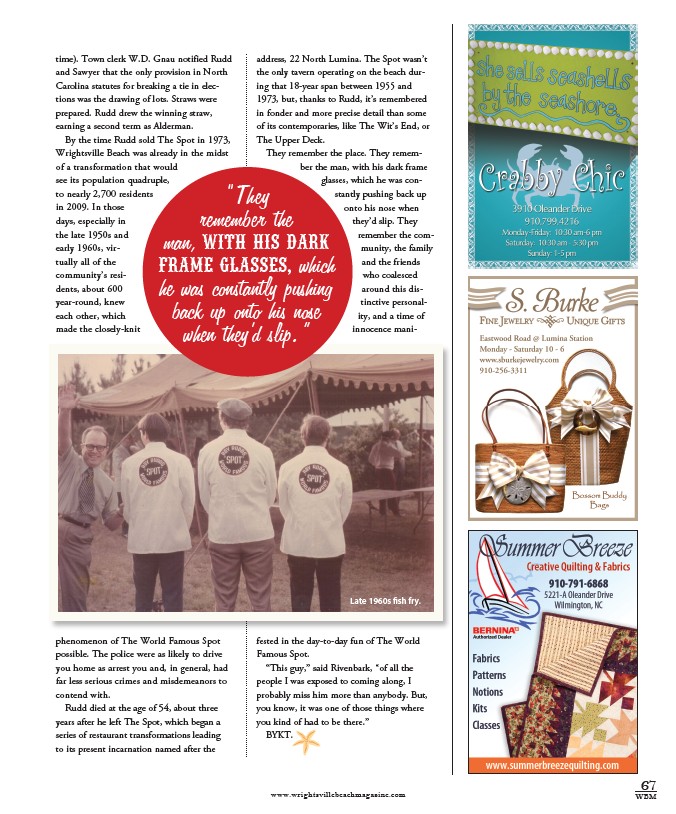
67
“They
remember the
man, with his dark
frame glasses, which
he was constantly pushing
back up onto his nose
when they’d slip.”
Late 1960s fish fry.
www.wrightsvillebeachmagazine.com WBM
time). Town clerk W.D. Gnau notified Rudd
and Sawyer that the only provision in North
Carolina statutes for breaking a tie in elections
was the drawing of lots. Straws were
prepared. Rudd drew the winning straw,
earning a second term as Alderman.
By the time Rudd sold The Spot in 1973,
Wrightsville Beach was already in the midst
of a transformation that would
see its population quadruple,
to nearly 2,700 residents
in 2009. In those
days, especially in
the late 1950s and
early 1960s, virtually
all of the
community’s residents,
about 600
year-round, knew
each other, which
made the closely-knit
phenomenon of The World Famous Spot
possible. The police were as likely to drive
you home as arrest you and, in general, had
far less serious crimes and misdemeanors to
contend with.
Rudd died at the age of 54, about three
years after he left The Spot, which began a
series of restaurant transformations leading
to its present incarnation named after the
address, 22 North Lumina. The Spot wasn’t
the only tavern operating on the beach during
that 18-year span between 1955 and
1973, but, thanks to Rudd, it’s remembered
in fonder and more precise detail than some
of its contemporaries, like The Wit’s End, or
The Upper Deck.
They remember the place. They remember
the man, with his dark frame
glasses, which he was constantly
pushing back up
onto his nose when
they’d slip. They
remember the community,
the family
and the friends
who coalesced
around this distinctive
personality,
and a time of
innocence manifested
in the day-to-day fun of The World
Famous Spot.
“This guy,” said Rivenbark, “of all the
people I was exposed to coming along, I
probably miss him more than anybody. But,
you know, it was one of those things where
you kind of had to be there.”
BYKT.